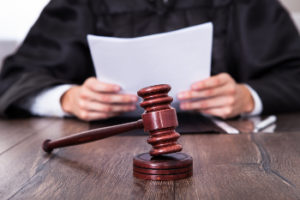Legally Reviewed By:
Brian P. Gabriel, Esquire
 Life is a never-ending learning process by which everyday mistakes help you grow. Unfortunately, some mistakes may have criminal consequences that may influence your life in the present and future. In the United States, a significant portion of the population has been or is currently in trouble with the law. Individuals who are arrested or charged with crimes endure the burden of a criminal record, which tends to negatively impact their ability to contribute to society. In Florida, some individuals may be eligible to have their adjudications withheld, which is one way the justice system provides a second chance to offenders.
Life is a never-ending learning process by which everyday mistakes help you grow. Unfortunately, some mistakes may have criminal consequences that may influence your life in the present and future. In the United States, a significant portion of the population has been or is currently in trouble with the law. Individuals who are arrested or charged with crimes endure the burden of a criminal record, which tends to negatively impact their ability to contribute to society. In Florida, some individuals may be eligible to have their adjudications withheld, which is one way the justice system provides a second chance to offenders.
How Does a Withhold of Adjudication Work in Florida?
Not all who plead “guilty” or “no contest” are automatically convicted of crimes in Florida. In fact, an individual may be found guilty of an offense and avoid a formal conviction through a withhold of adjudication.
It is up to the court to determine whether you will be adjudicated guilty (convicted) of an offense or if the court will withhold the adjudication of guilt. The court may find a defendant guilty of an offense but avoid convicting them of the crime in situations where the defendant displayed uncharacteristic behavior when committing the crime.
Under Florida Statute 948.01, if it appears to the court that a defendant is unlikely to engage in more criminal activity and should thus not suffer the penalty for the offense, the court may use their discretion when choosing to withhold adjudication of guilt. Depending on the offense for which you face charges, you may be subject to the following:
- If you are charged with a felony offense, the court may place you on probation rather than sentencing you to other penalties.
- If you’re charged with a non-felony offense and you’re not sentenced to probation, the court may impose a fine. Once you pay your fine, there is no adjudication of guilt and you may avoid a conviction.
It’s important to note that a withhold of adjudication does not mean that the court has dismissed your criminal case or cleared your charges.
Your criminal defense attorney may be able to give you an approximate idea of what you might expect if you’re eligible for a withhold of adjudication. Attorney Brian P. Gabriel would apply his years of experience working with criminal defendants and the courts to inform you of likely scenarios you may encounter if the court decides to withhold adjudication in your case.
What Are the Benefits of Withholding Adjudication?
Although a withhold of adjudication will not clear your record, there are several reasons why it’s worth pursuing with the help of a criminal defense lawyer.
- With a withhold of adjudication, you may keep your driver’s license if you’re at risk of losing it because you pleaded guilty or no contest to a charge in which losing your license is a potential penalty.
- With a withhold of adjudication, you may answer “no” to questions on job applications that ask whether you’ve ever been convicted of a crime.
- With a withhold of adjudication for a felony offense, you may own a firearm since you’re not a convicted felon.
- With a withhold of adjudication, you can vote and exercise other civil rights.
- With a withhold of adjudication, you may avoid the several obstacles often created by a criminal conviction, such as being disqualified for a job or housing.
Additionally, you may petition the court to seal your criminal record.
There is a limited number of withholds the court may grant a defendant, which is why you should discuss the matter thoroughly with your criminal lawyer.
Seek Experienced Legal Counsel to Receive a Withhold of Adjudication in West Palm Beach
Talk to a defense lawyer to see if you may be eligible for a withhold of adjudication. Attorney Brian P. Gabriel has more than 30 years of experience helping defendants avoid criminal convictions that could hurt their futures. Depending on the facts of your case, a withhold of adjudication is one of a few ways that may allow you to avoid a criminal conviction. Call 561-622-5575 or complete a contact form for a free consultation.



